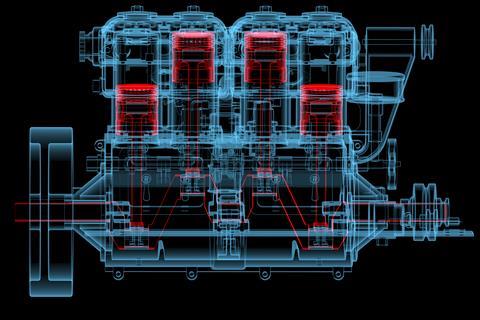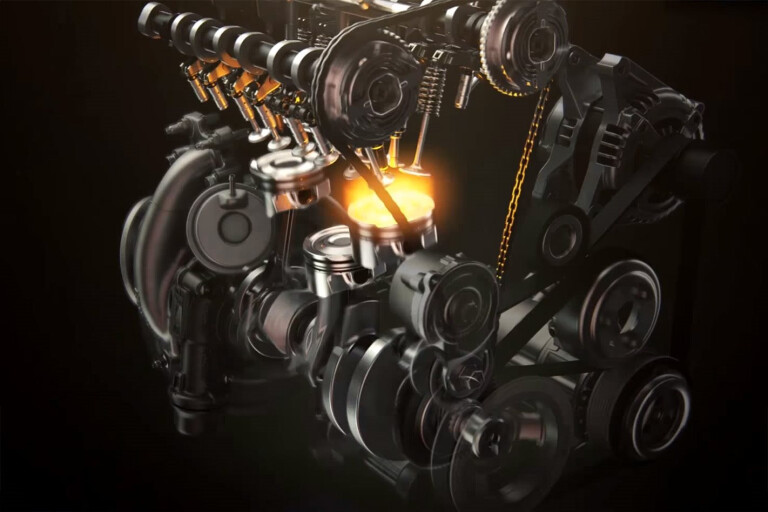Explore Engines for Africa at Our Extensive Automobile Components Shop
The Influence of Ingenious Engine Technologies on Energy Effectiveness and Environmental Sustainability
In the world of transport and industrial machinery, the constant quest for enhanced energy performance and reduced environmental influence has actually led to considerable developments in engine technologies. From the progressive shift towards electric and hybrid systems to the combination of turbocharging for improved performance, the landscape of engines is progressing quickly.
Development of Engine Technologies
The development of engine innovations over the years has been marked by continuous innovation and refinement in pursuit of improved efficiency and efficiency. From the early days of internal burning engines to the innovative hybrid and electrical powertrains these days, the evolution of engine technologies has actually been driven by a ruthless quest for improved gas effectiveness and minimized emissions.
One substantial turning point in this advancement was the advancement of turbocharging and straight shot systems, which dramatically enhanced engine power output while boosting fuel effectiveness. These technologies enabled smaller, extra lightweight engines that could provide the performance of bigger ones without jeopardizing on performance.
Additionally, advancements in materials science have resulted in the widespread fostering of light-weight materials such as light weight aluminum and carbon fiber in engine building. This has not only reduced overall lorry weight yet has additionally enhanced engine effectiveness by minimizing power losses related to inertia and rubbing.
Benefits of Electric and Hybrid Equipments
With the growing concentrate on sustainability and energy performance, what advantages do electric and hybrid systems use in the realm of engine innovations? Electric and hybrid systems existing many benefits that add to a more sustainable and energy-efficient future. Among the primary advantages is the substantial reduction in greenhouse gas discharges compared to standard internal combustion engines. Electric cars create absolutely no tailpipe emissions, leading to improved air quality and minimized ecological influence. In addition, electrical and hybrid systems are a lot more energy-efficient, transforming a greater portion of saved power into propulsion contrasted to traditional engines. This effectiveness results in lower power consumption and operating prices over the car's life time. Furthermore, electrical automobiles provide regenerative stopping systems that catch and save energy usually lost during stopping, even more improving energy effectiveness. Crossbreed systems integrate the advantages of electric propulsion with the versatility of a burning engine, providing expanded driving varieties and decreasing variety anxiousness for consumers transitioning to electrical vehicles. Generally, electric and hybrid systems play an important role in advancing energy effectiveness and environmental sustainability in the transportation sector.
Turbocharging for Improved Effectiveness
Turbocharging jobs by making use of a wind turbine to compel even more air right into the combustion chamber, permitting for far better fuel burning and boosted power outcome without a considerable rise in engine dimension. By optimizing the effectiveness of the burning process, turbocharged engines can achieve improved gas economy and minimized emissions, contributing to ecological sustainability. The widespread fostering of turbocharged engines in both gasoline and diesel lorries shows their effectiveness in stabilizing efficiency, effectiveness, and ecological effect.
Utilizing Different Fuels
Taking advantage of alternate gas presents an encouraging avenue for reducing carbon exhausts and branching out the power resources used in transport. As the world makes every effort to combat climate adjustment and reduce dependency on nonrenewable fuel sources, different fuels have gained considerable focus for their potential environmental and financial advantages.
Biofuels, such as ethanol and biodiesel, are originated from sustainable resources like corn, algae, and sugarcane, offering a cleaner burning visit this site choice to conventional fuel and diesel. These fuels can be blended with existing petroleum fuels or made use of in dedicated engines, offering a pathway to lower greenhouse gas discharges and improve air top quality.
Moreover, hydrogen gas cells have become a promising innovation for zero-emission transportation. engines for africa. By converting hydrogen gas into electrical power to power electric motors, fuel cell cars generate only water vapor as a result, eliminating dangerous tailpipe exhausts totally
Along with decreasing carbon discharges, alternative fuels can also boost power safety by expanding the fuel mix and decreasing reliance on imported oil. Welcoming different fuels in transportation is an important step in the direction of accomplishing a more lasting and eco-friendly future.

Ecological Advantages and Future Potential customers
The ecological advantages of alternative gas and their potential for long-lasting sustainability are vital factors to consider in the shift in the direction of cleaner energy resources. Alternative fuels, such as biofuels, hydrogen, and electrical power, offer significant ecological advantages compared to traditional fossil gas. These gas produce lower levels of greenhouse gas exhausts, reducing air pollution and mitigating environment change influences. Furthermore, different fuels can help branch out energy resources, enhancing energy protection and reducing reliance on finite resources.
The future potential customers for alternate fuels in the transportation market are appealing. Advancements in technology continue to improve the effectiveness and price of alternate fuel vehicles, making them a lot more obtainable to consumers. Governments all over the world are likewise carrying out policies to incentivize the adoption of alternative fuels, further driving their growth. As r & d initiatives expand, the potential for also greener and extra lasting gas alternatives raises, leading the way for a cleaner and extra eco-friendly transportation industry. By embracing innovative modern technologies and alternative gas, the course in the direction of a more lasting future ends up being significantly possible.

Final Thought
In verdict, cutting-edge engine technologies have actually played an important function in boosting power performance and promoting environmental sustainability. The evolution of engine innovations, adoption of electric and hybrid systems, utilization of turbocharging, and exploration of different gas have all contributed to decreasing exhausts and increasing performance.
In the world of transport and commercial machinery, the constant mission for improved have a peek at these guys energy performance and minimized ecological effect has led to considerable innovations in engine technologies. Turbocharging jobs by using a turbine to compel even more air into the combustion chamber, enabling for much better fuel burning and increased power result without a substantial rise in engine dimension. By optimizing the effectiveness of the combustion procedure, turbocharged engines can accomplish better gas economic climate and minimized emissions, contributing to environmental sustainability. Alternate fuels, such as biofuels, hydrogen, and electrical energy, offer substantial ecological advantages contrasted to typical fossil gas. The development of have a peek at this website engine technologies, fostering of hybrid and electric systems, use of turbocharging, and exploration of different fuels have all added to enhancing and minimizing discharges efficiency.